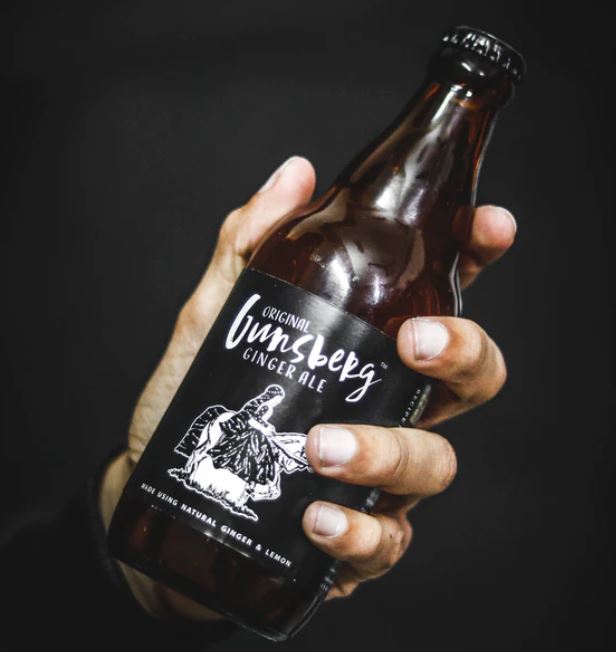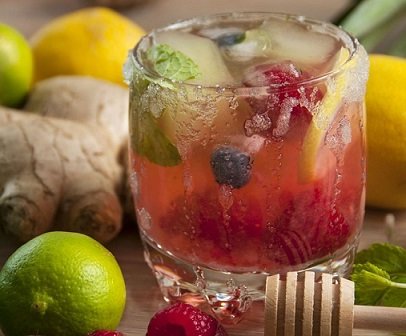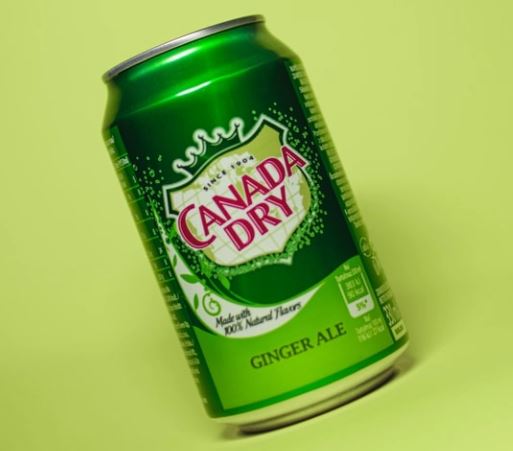Ginger ale is a common beverage easy to find in the grocery store along with the other “fizzy drinks”. So a common question that comes to mind is whether ginger ale is good for you? Or can it do more harm than good?
Ginger Ale can be consumed in small doses providing some positive effects due to the high presence of real ginger root. Though too much of this can cause negative health effects because of its high sugar and preservative content.
Technically, “ale” means a form of beer or fermented beverage. This is not true for modern-day Ginger Ale! The one as we see in stores is more of a sweeter non-fermented version.
Everything in moderation can’t do too much harm. But some people may overindulge which can be harmful.
Which Ginger Ale Has Real Ginger? Review of 5 most popular ones
What is Ginger Ale?
Ginger Ale is a ginger-flavored carbonated soda drink that is thought to have originated in Ireland in the 1850s. There were two traditional variants then: golden ginger ale and dry ginger ale.
Today, what we see is the dry ginger ale variant which has a spicier and more intense gingery taste than the golden ginger ale variant.
It can be consumed alone or can be used as the base ingredient for fancy beverages (alcoholic or non-alcoholic).
Of course, this beverage has evolved quite a bit to make it more suitable to the taste buds of the current market and popular taste.
The composition is also slightly altered according to the availability of ingredients. This is why some of them may actually contain artificial ginger flavors!
Ginger ale remains a popular drink in Europe, North America, and even parts of Africa and Asia. This age-old carbonated drink offers a taste that many beverages like Coca-Cola, Pepsi, and Mountain Dew do not offer. This makes it undeniably unique!
It is commonly sold in a glass bottle with a metal cap or in a tin can. These packaging options make it convenient to buy and then recycle after consumption.
How Much Ginger Should I Take Daily? What are Benefits & Side Effects?
Ginger Ale Ingredients
Ginger Ale is a popular beverage in the USA and most other parts of the world. This popular Ale is a mixture of a few staple ingredients. These are:
- Carbonated water or soda water
- High fructose corn syrup or sugar (as a sweetener)
- Ginger extract (natural or artificial)
- Preservatives (Citric Acid, Sodium Benzoate)
Apart from these staples, Ginger ale manufacturing companies may choose to further “enhance” the flavor of the beverage by adding a “secret trademarked ingredient”.
This ingredient is usually a company specialty that aims to entice customers with a better taste than other companies.
It is very popular for its taste which is not like your regular caffeinated soda beverage like Coca-Cola or Pepsi. It also lacks any caffeine at all, making it a bit more health-conscious alternative.
According to the United States Department of Agriculture (USDA), Ginger Ale composition per 100 grams is as follows:
- Water: 91.23g
- Energy: 34 kcal
- Energy: 142kJ
- Protein: 0g
- Total lipid (fat): 0g
- Ash: 0.01g
- Carbohydrates: 8.76g
- Fiber: 0g
- Sugars: 8.9g
- Sucrose: 1.9g
- Glucose: 3.1g
- Calcium: 3mg
- Iron: 0.18g
- Magnesium: 1mg
- Phosphorus: 0mg
- Potassium: 1mg
- Sodium: 7mg
- Zinc:0.05mg
- Copper: 0.018mg
- Manganese: 0.013mg
- Selenium: 0.1mg
- Vitamin C: 0mg

Ginger Ale Benefits and Side Effects
There is much debate about whether it is a healthy beverage or an unhealthy beverage. The truth is, it has both benefits and side effects. Let us look at both of them below.
Benefits of Ginger Ale
Almost all the benefits are attributed to the presence of natural ginger root.
1. Ginger Ale Helps With Nausea
Ginger in high amounts can help with nausea. Reasons for nausea can be pregnancy, chemotherapy, food poisoning, etc.
Though we would advise caution due to carbonation as it can increase bloating or diarrhea.
2. Reduces Heart Disease
Ginger works to lower and control blood pressure. Stabilizing blood pressure means there are lower chances of heart attacks and strokes.
3. Anti-Inflammatory and Anti-Cancer Properties
Ginger typically offers anti-inflammatory and anti-cancer properties but this depends on the quantity of real ginger root present in your drink.
4. Caffeine-Free
This is where Ginger ale differs from other carbonated competitors as it contains absolutely no caffeine. Caffeine is mostly used to counter sweetness, but in this drink, ginger is used to counteract the sweetness of sugars.
Side Effects of Ginger Ale
Although ginger ale tastes great, it could have unpleasant side effects when consumed in high amounts or when consumed too frequently. To give you some insight into what to expect, here are some side effects:
1. Effects of Carbonated Water
Carbonated drinks like Ginger ale prove to be too “fizzy” for many individuals. This can lead to bloating or diarrhea when consumed in large amounts.
2. Concealed Amounts of Sugar
This ale like other sodas contains insanely high amounts of sugar to make it more desirable to our taste buds.
Of course, you do not feel this sweet taste due to the spicy gingery taste.
3. Artificial Sweeteners and Preservatives
It is no secret that all beverages including packaged edibles contain a certain allocation of artificial preservatives and taste enhancers. These artificial products in most cases are not good for health.
Homemade Ginger Ale

You can easily make ginger ale at home with ingredients that are pretty easy to find at your local grocery store. This includes
- 3 tablespoon Fresh Lime Juice
- 7 – 8 ounces of Ginger (preferably real ginger rhizomes peeled)
- 2 cups of Water
- 3/4 cups of Granulated sugar
- Carbonated water/Club Soda (whichever is available to you)
Follow the following steps to make homemade ginger ale.
- Put the water and ginger in a saucepan and boil it for 10 minutes at medium heat.
- Let it cool down for 20 minutes and then strain it to remove ginger.
- Return this remaining liquid to the same pan and add sugar. Boil it for 20 minutes with continuous stirring so that sugar is fully dissolved.
- Add lemon juice and a pinch of salt.
- When serving, use ¼ ginger syrup with ¾ carbonated water.
Ginger Ale Vs Carbonated Water (Club Soda)
So how exactly does ginger ale differ from carbonated water, or are they more similar than we thought?
Carbonated Water goes by many names depending on where you live. Some names include Soda Water, Seltzer Water, Sparkling Water, and even Tonic Water.
Similarities
- One thing is for sure, BOTH ginger ale and carbonated water contain carbonation. Carbonation is the addition of carbon dioxide that produces fizzy effervescence, an interesting taste, and a preserving effect that makes it last long without spoiling.
- Both of these drinks can be used as a mixer often to dilute alcohols making a more satisfying taste by mellowing down intense flavors.
Differences
- Ginger ale is sweetened and contains a lot of added sugar whereas carbonated water has no added sugar.
- Ginger ale tastes gingery while carbonated water is rather bland. Some may even say that carbonated water bears a bitter taste that is not fancied by many.
Ginger Ale Vs Ginger Beer
Some people confuse ginger ale with ginger beer. We do not blame you since companies usually mislead you or build on the success of ginger beer.
One main difference between the two ginger drinks is below
Ginger ale is a non-alcoholic beverage while ginger beer contains alcohol. The alcohol content is small (around 0.5%, compared to the usual 3-5%), but even this small percentage makes it unsuitable for young people.
More differences also lie in the quantities of ingredients that ginger ale and ginger beer contain. For example:
- Ginger ale contains much more sugar than ginger beer (almost 50% less)
- This ginger beverage does not contain Sodium while ginger beer contains about 25.6 grams of sodium per 12 ounces.
- Also, ginger ale lacks some vital nutrients that ginger beer contains (Potassium, Vitamin B6, Iron, Vitamin C)
FAQs
Ginger ale is a non-alcoholic beverage that is classified under the category of sodas or carbonated drinks. The core ingredient is soda water. If you are looking for an alcoholic beverage that contains ginger flavor, Ginger Beer is the best alternative.
Many cultures believe ginger can be a natural remedy for weight loss when consumed in certain ways. Examples are ginger tea, apple cider vinegar with ginger, hot water, and ginger.
Ginger ale is not recommended for weight loss as it has added sugar. Long-term consumption may actually be more harmful and help to gain weight instead.
Store-bought ginger ale usually contains ingredients that are bad for you. On the other hand, a homemade one will have precise measurements of ingredients that you would like to have.
Homemade ginger ale is generally much healthier than store-bought one as you can control the amount of sugar and preservatives.

